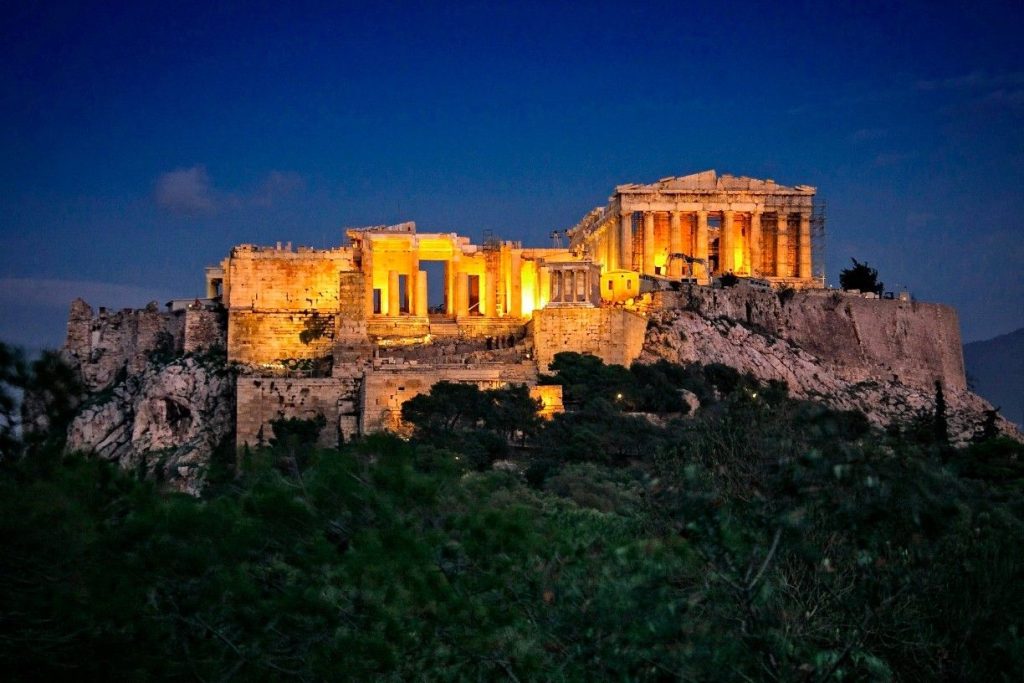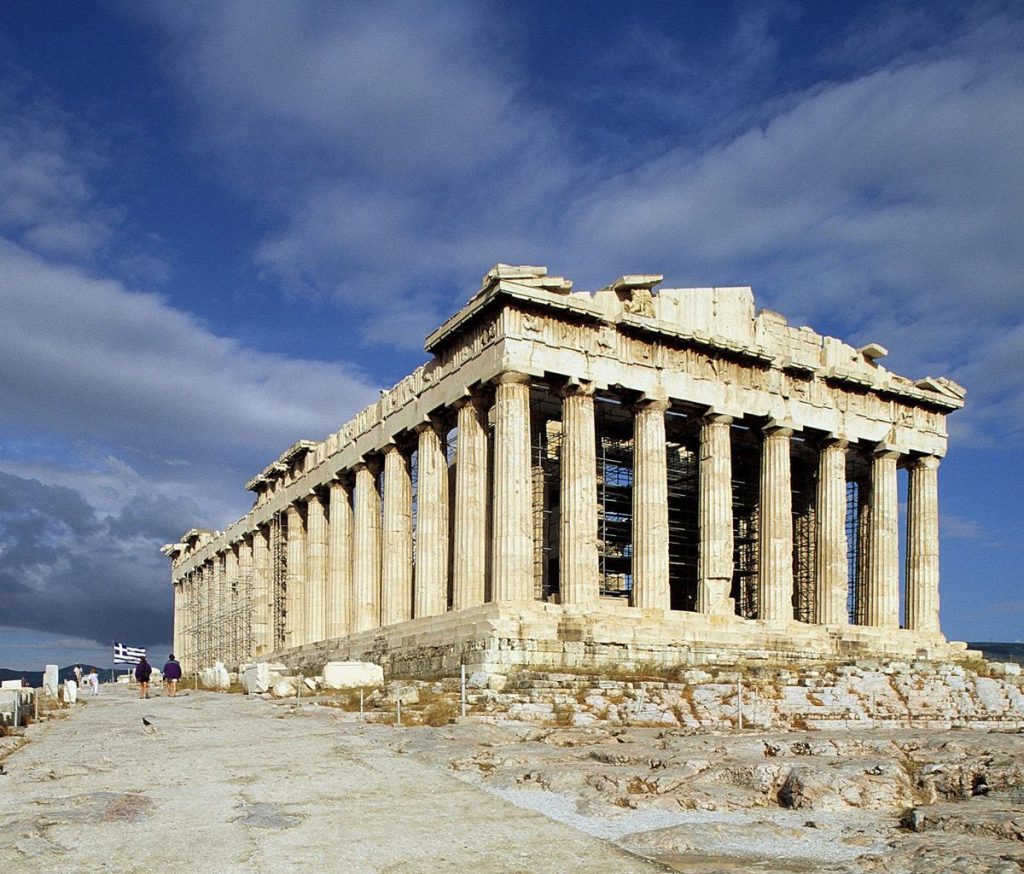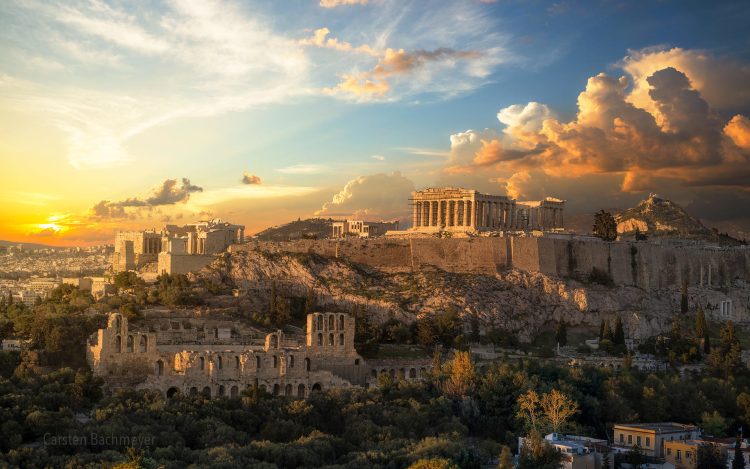The cultural practices of Greece are rich and varied, deeply rooted in its long history and unique traditions. The following is a detailed description of Greek cultural customs, covering the historical background, characteristics, traditional rituals, food culture, entertainment and social, religious beliefs, technology, art, philosophy and other aspects.
The historical background and origin of Greek culture
Greek culture originated in the Ancient Greek period, from about the 8th century BC, and has continued to the present day. Ancient Greece is located in the northeast of the Mediterranean Sea, with many islands and peninsulas, this geographical environment makes the ancient Greek culture with the characteristics of openness and diversity. Through communication and interaction with the surrounding areas, the ancient Greeks gradually formed a unique cultural system.
The historical background of ancient Greek culture can be traced back to the age of mythology, which is an important part of ancient Greek culture and has a profound influence on later philosophy, literature and art. In addition, the development of the city-state system in ancient Greece also provided the soil for the prosperity of culture, and the competition and cooperation between various city-states promoted the exchange and integration of culture.

Characteristics and peculiarities of Greek culture
The characteristics of Greek culture are mainly reflected in the following aspects:
First of all, Greek culture emphasizes the spirit of humanism and the value and dignity of human beings. Ancient Greek philosophers put forward the view that “man is the measure of all things”, emphasizing the importance of rational thinking and free will of man.
Secondly, Greek culture is open and inclusive. The ancient Greeks were good at absorbing and learning from the advantages of other cultures, integrating them into their own cultural system, and forming a unique cultural style.
Third, Greek culture focuses on aesthetics and art. The ancient Greeks made remarkable achievements in the fields of architecture, sculpture and painting, and their works are famous for their simplicity, elegance and harmony.
Finally, Greek culture also has a strong religious color. The ancient Greeks believed in polytheism, and each god had a specific function and symbolic meaning, and these gods played an important role in the life of the ancient Greeks.
The traditions and rituals of Greek culture
The traditions and rituals of Greek culture are rich and colorful, reflecting the ancient Greeks’ love of life and fear of gods. Here are some of the main traditions and rituals:
Olympic Games: The most important sporting event of the ancient Greek period, held every four years. The Olympic Games is not only a place for sports competition, but also an important activity for cultural exchange and religious sacrifice.
Wedding ceremony: The Greek wedding ceremony usually includes three stages: engagement, wedding and post-wedding celebration. During the wedding ceremony, the bride and groom, dressed in traditional dress, exchange rings and perform the ceremony in front of relatives and friends. Wedding celebrations usually include dances, banquets, etc., the scene is lively and festive.
Naming ceremony: In Greece, a naming ceremony is held shortly after birth. Parents choose a name with special meaning for their child and invite friends and family to witness the occasion.
Religious festivals: There are many festivals related to religion in Greece, such as the Athena Festival and the Apollo Festival. These festivals are usually accompanied by sacrificial ceremonies, parades and artistic performances, and people celebrate festivals to show their respect and gratitude to the gods.
Greek culture food and culture
Greek food culture is an important part of its cultural customs, with unique flavor and characteristics. The Greeks pay attention to the health and nutrition of their diet, and their food is mainly fresh, natural and simple.
Greek staple foods include bread, pasta, etc., and olive oil is the main oil for cooking and seasoning. In terms of meat, Greeks like to eat lamb, chicken and fish, and in terms of vegetables, they prefer to use tomatoes, cucumbers, olives and other ingredients. In addition, Greek cheese and wine are also renowned and are indispensable dishes on the Greek table.
In Greek food culture, eating together is an important way to socialize. Greeks like to share food with family and friends, and to enhance their feelings through dinner. At the dinner party, they usually prepare rich dishes and drinks, so that everyone can enjoy the fun of food.

The Greek way of entertainment and socializing
The Greeks were equally varied in their ways of entertainment and socializing, reflecting their nature of loving life and socializing.
In terms of recreation, Greeks like to participate in various sports, such as football, basketball, swimming and so on. In addition, they also enjoy watching literary and artistic activities such as drama, music and dance performances, which not only enrich their spiritual life, but also promote the exchange and dissemination of culture.
Socially, the Greeks focused on building and maintaining relationships. They like to keep in close contact with family, friends and colleagues, through parties, dinners and other ways to enhance mutual understanding and friendship. In social situations, Greeks are generally hospitable and polite, they are good at listening to other people’s opinions and ideas, and they are willing to share their own experiences and insights.
Religion and belief in Greek culture
The religion and belief of Greek culture is an important part of its cultural practices and has had a profound influence on the life and thought of the Greek people.
The ancient Greeks believed in polytheism, in which each god had a specific function and symbolic meaning. They express their respect and gratitude to the gods through sacrifices, prayers and other ways, and also seek the blessings and protection of the gods. In ancient Greek religious ceremonies, people would wear certain clothes, offer sacrifices and hold various rituals to pray for the blessing and protection of the gods.
Over time, Greek religion evolved and developed. In modern Greek society, although the belief in polytheism has gradually faded, religion still occupies an important position in people’s lives. Many Greeks participate in church activities, celebrate religious festivals, etc. to express their faith and spiritual pursuits.
Other aspects of Greek culture
In addition to the above aspects, Greek culture has also made outstanding achievements in many fields, such as science and technology, art, and philosophy.
In terms of science and technology, the ancient Greeks made important contributions in the fields of mathematics, astronomy, medicine and so on. They invented many important scientific theories and methods, which laid the foundation for later scientific development.
In art, the ancient Greeks made outstanding achievements in the fields of architecture, sculpture, painting and so on. Their works, known for their simplicity, elegance and harmony, had a profound influence on the later development of art.
In philosophy, ancient Greek philosophy is one of the sources of Western philosophy. The ancient Greek philosophers put forward many important philosophical thoughts and viewpoints, such as Plato’s theory of ideas and Aristotle’s logic, which had a profound influence on the later development of philosophy.
Greek culture also has rich accumulation and contribution in literature, history and other fields. Ancient Greek myths, epics, plays and other literary works are still widely celebrated and studied today. They not only show the wisdom and creativity of the ancient Greeks, but also provide us with an important window to understand the culture and history of ancient Greece.
Greek culture and customs are rich and unique, covering history, religion, art, technology and many other aspects. These customs not only reflect the wisdom and creativity of the ancient Greeks, but also provide us with an important way to understand Western culture and history. With the changes of The Times and the development of society, Greek cultural customs are constantly evolving and developing, but its core values and spiritual connotation are still preserved and inherited.





















